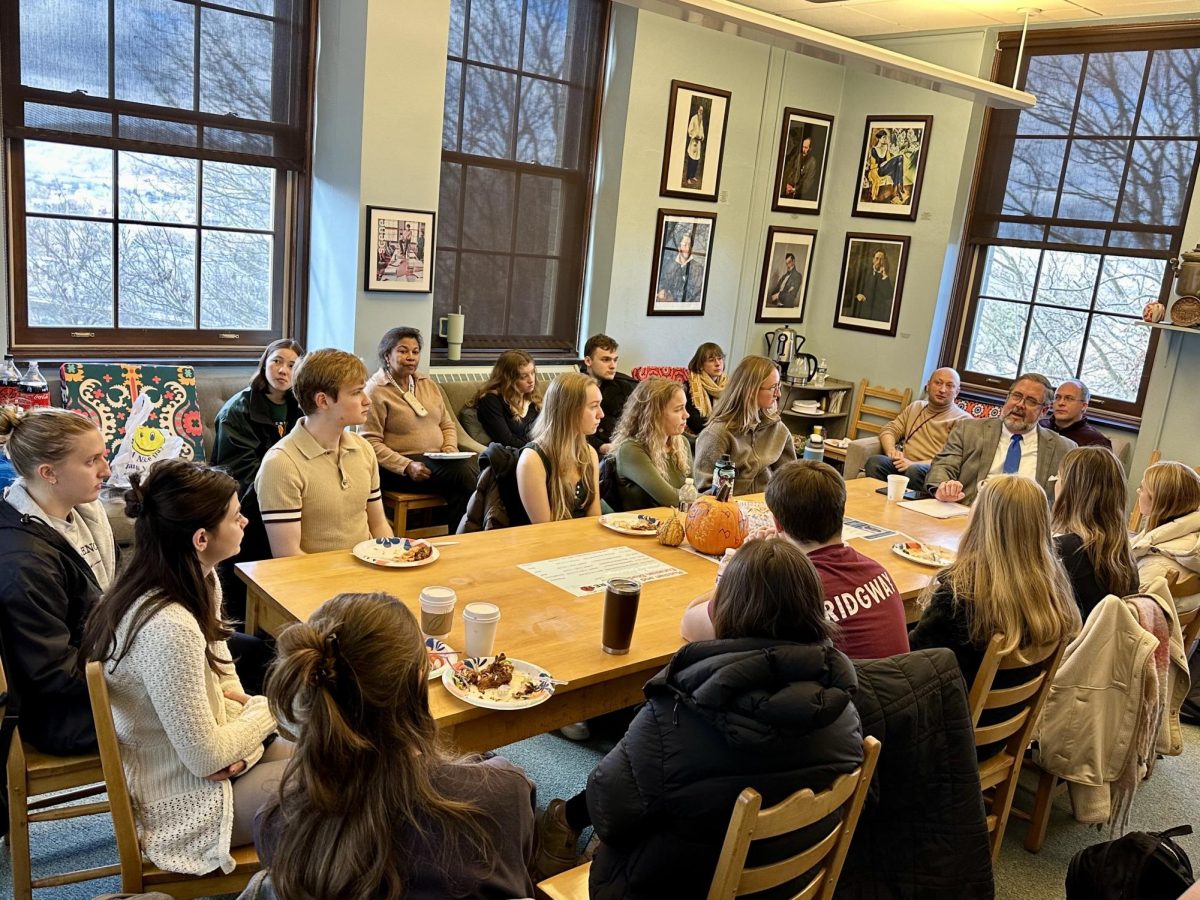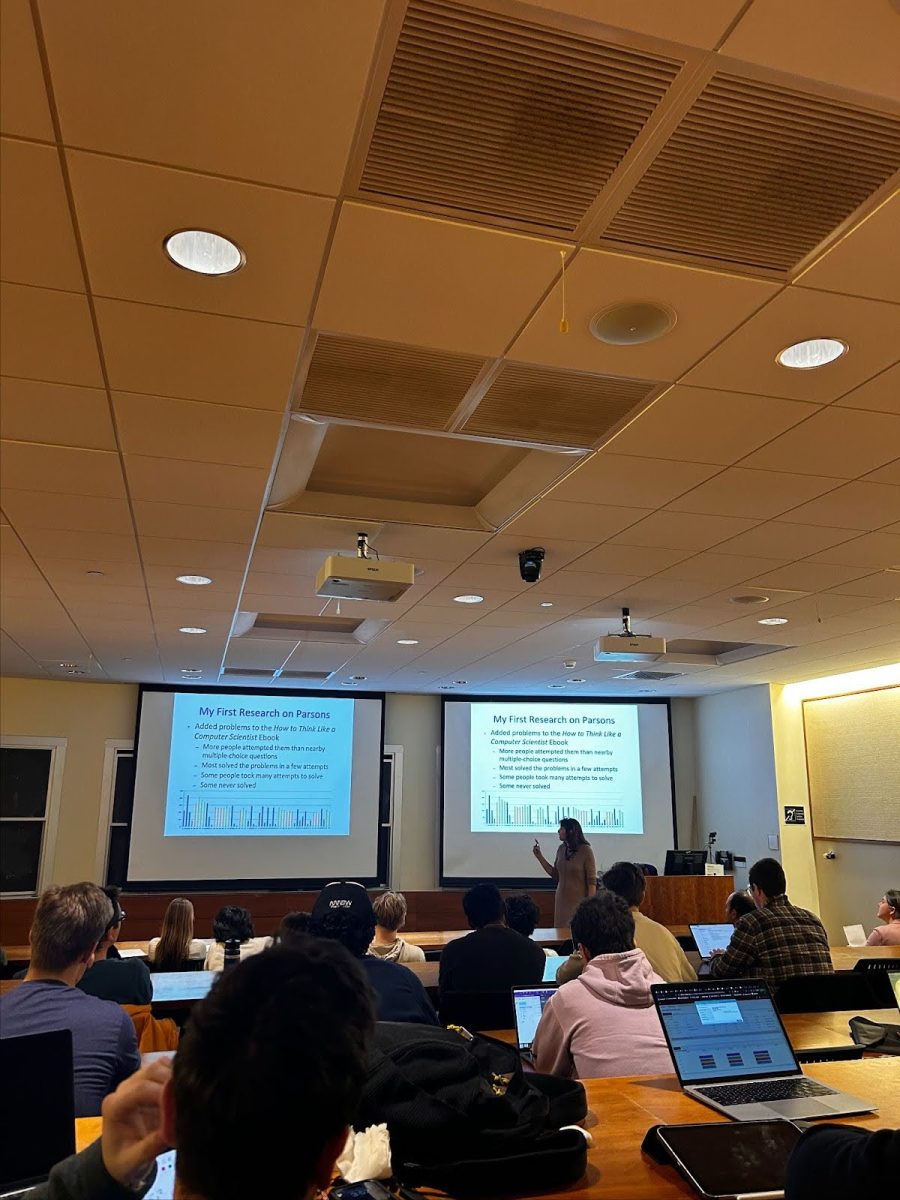Colgate University’s Chapel House and its departments of Jewish studies and philosophy hosted a colloquium called “A Voice Crying in the Wilderness: Prophetic Jewish Ethics Today” on Tuesday, April 16. Steven Kepnes, professor of religion and Jewish studies and director of Chapel House, spoke at the colloquium.
The discussion revolved around 20th-century Jewish philosopher Martin Buber. Buber rooted his ideologies in both biblical and philosophical terms in order to cultivate a series of ethics that define human responsibility. Kepnes detailed how Buber’s teachings could be applied to the modern day. Buber’s ethical ideology was applied to a series of modern social issues that many grapple with today, including distrust of the government and climate change.
Kepnes started off his presentation by defining metaphysics, a concept that is contemplated by philosophers and sociologists alike.
“The ethics of metaphysics aim to connect the awful magnificence of God with the earthly existence that humans experience,” Kepnes said.
Kepnes noted that people and governments are able to find purpose and impose legislation through stability and legitimacy through metaphysics. However, Kepnes reflected on this idea of legitimacy and compared the governments and social scenes the world once experienced to the world in which we live today. The professor believes that there is a lack of vibrancy today, which most likely stems from the political distrust and hostility that recent governmental institutions have provoked.
When Kepnes arrived at Colgate in the late 1980s, he was attracted by the welcoming and education-seeking community. He described the environment as full of people who were not alienated by their grievances and who talked about vibrant pluralism. He believed there was still hope that healthy discourse between the left and the right could still occur.
“In the age of social media, civility and public discourse is hard to find,” Kepnes said.
His presentation analyzed religion and prophetic ethics in a way that made it comprehensible to compare the past with the present. Kepnes found it disappointing yet realistic to define our society as living in the “post-truth” era, which he explained can best be exemplified by its description as the age of TikTok and of Donald Trump.
“It is clear that many Trump supporters believe that our democratic system does not support them and has been taken over by the radical left,” Kepnes said.
His ideologies are deeply rooted in his ties to Judaism and the ethics that are taught by Jewish prophets. Along with his work in the field of Jewish studies, Kepnes is also prolific in the study of world religions, making the various ideas that he works with easier to synthesize and connect to each other.
Harry Emerson Fosdick Professor of the Humanities and Native American Studies in the Department of Religion Christopher Vecsey, who has worked closely alongside Kepnes since they both started their professional careers, introduced Kepnes at the colloquium.
“Kepnes’ coursework and his writings arise organically from his being,” Vecsey said.
To tie in with his idea of human responsibility, Professor Kepnes turned to the issue of climate change. He outlined how the impact of humankind’s ability to fall short of responsibility can lead to detrimental effects. Kepnes localized these implications, as well, as he stated how the last 10 months in Central New York have been the hottest on record.
“We are still doing far too little to combat climate change,” Kepnes said.
His points about today’s climate crisis instilled a sense of urgency and responsibility in the audience. Kepnes concluded his presentation by synthesizing his beliefs with Buber’s.
“The power of the prophetic word is in placing humans in front of the moral condition of the world, at the tipping point of disaster,” Kepnes said. “There, the prophet reveals the ultimate responsibility of humans to decide and act, and to set the path of the world towards life and justice, not only to humans, but for all of creation.”
First-year Holly O’Brien shared her opinion on the colloquium and how Kepnes’ message resonated with her.
“I thought Professor Kepnes’ presentation was informative as well as timely,” O’Brien said. “I believe in his sense of action that must be taken by a collective body of people willing to make change, and I thought it was a great message to pass on.”












